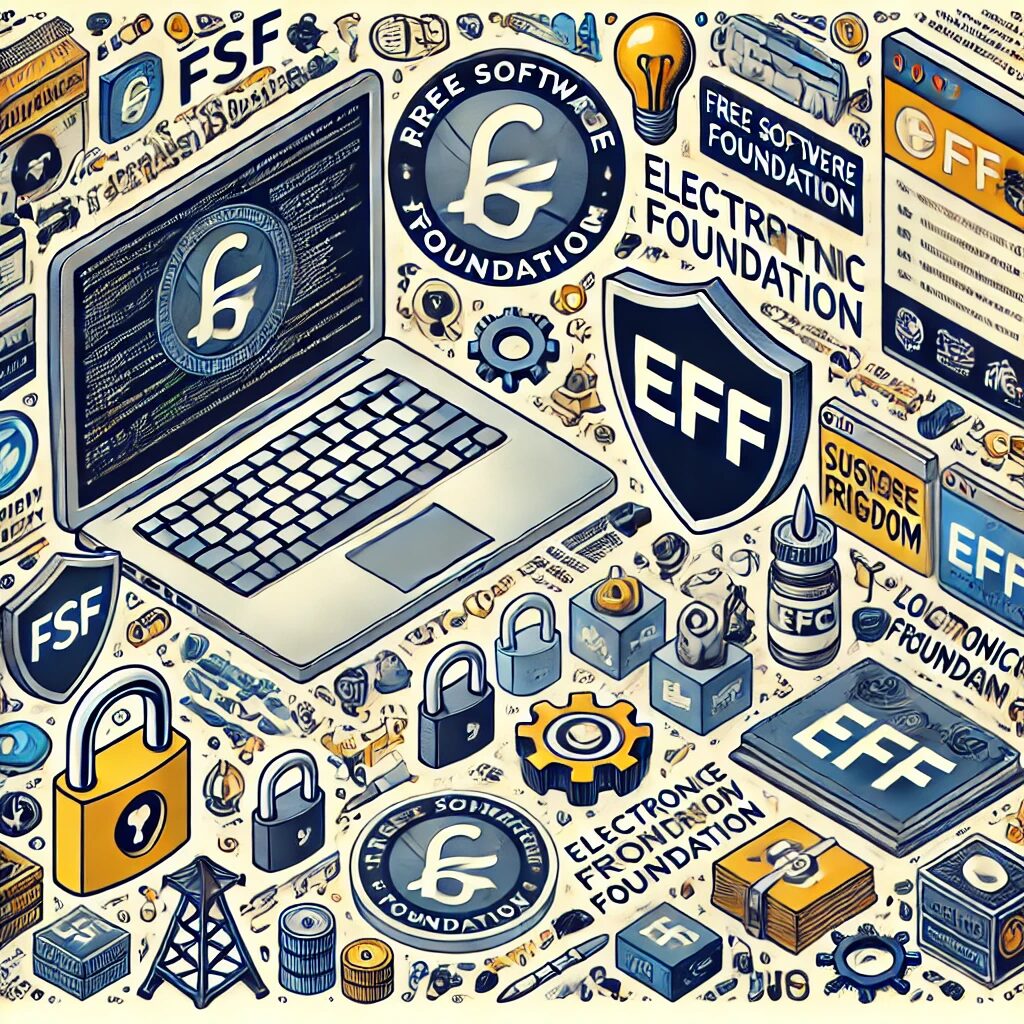Introduction
In the realm of digital rights and software freedom, two prominent organizations play pivotal roles: the Free Software Foundation (FSF) and the Electronic Frontier Foundation (EFF). Both organizations work towards ensuring freedoms and rights in the digital age, though their focuses and methodologies differ.
Free Software Foundation (FSF)
The Free Software Foundation, founded by Richard Stallman in 1985, is a non-profit organization dedicated to promoting computer user freedom. Its main objective is to eliminate restrictions on copying, redistributing, understanding, and modifying computer programs. The FSF advocates for software that respects users’ freedom and promotes the development and use of free (as in freedom) software.
Objectives of FSF
- Promote Free Software: The FSF encourages the use of free software by highlighting its benefits and supporting free software projects.
- Develop Free Software: The organization funds and contributes to the development of essential free software, such as the GNU operating system.
- Defend Software Freedom: The FSF actively opposes software patents and other legal restrictions that hinder software freedom.
- Educate the Public: The FSF provides resources and education on free software principles to the public and developers.
Roles of FSF
The FSF plays several crucial roles in the software freedom movement:
- Advocacy: The FSF advocates for policies that promote free software and protect user freedoms.
- Legal Support: The organization offers legal support to free software developers and users facing legal challenges.
- Project Sponsorship: The FSF sponsors and supports numerous free software projects, ensuring their continued development and maintenance.
Electronic Frontier Foundation (EFF)
The Electronic Frontier Foundation, founded in 1990, is a non-profit organization that defends civil liberties in the digital world. The EFF addresses a broad range of issues related to technology and rights, including privacy, free expression, and innovation.
Objectives of EFF
- Protect Privacy: The EFF works to safeguard individuals’ privacy rights in the digital era, advocating for stronger data protection laws and challenging surveillance practices.
- Defend Free Expression: The organization defends the right to free speech online, fighting against censorship and advocating for policies that support open internet access.
- Promote Innovation: The EFF supports technological innovation by opposing laws and policies that stifle creativity and development.
- Educate the Public: The EFF provides resources, legal guides, and educational materials to inform the public about their digital rights.
Roles of EFF
The EFF fulfills various roles in protecting digital rights:
- Legal Advocacy: The EFF engages in litigation and legal advocacy to defend digital rights and challenge unjust laws and practices.
- Public Policy Work: The organization works with policymakers to promote laws that protect privacy, free expression, and innovation.
- Research and Analysis: The EFF conducts research on emerging technology issues and publishes reports to inform public debate and policy decisions.
- Grassroots Activism: The EFF mobilizes individuals and communities to advocate for their digital rights through campaigns and activism.
Conclusion
Both the Free Software Foundation and the Electronic Frontier Foundation play vital roles in advocating for freedoms and rights in the digital age. While the FSF focuses on promoting and developing free software, the EFF addresses a broader range of digital rights issues, including privacy, free expression, and innovation. Together, they contribute to a more open, free, and fair digital world.




